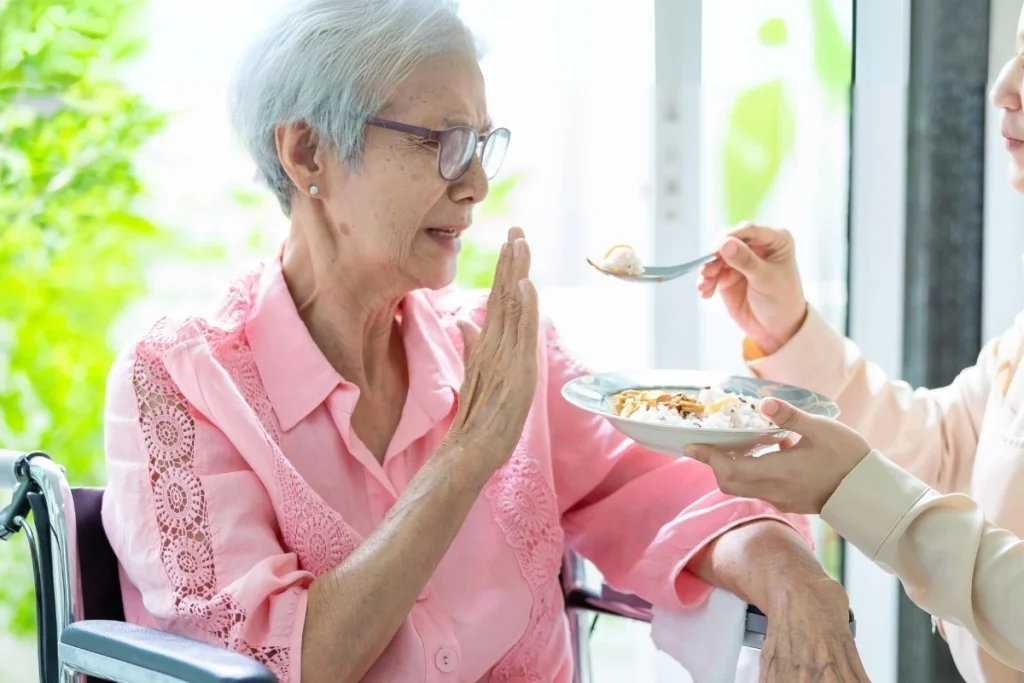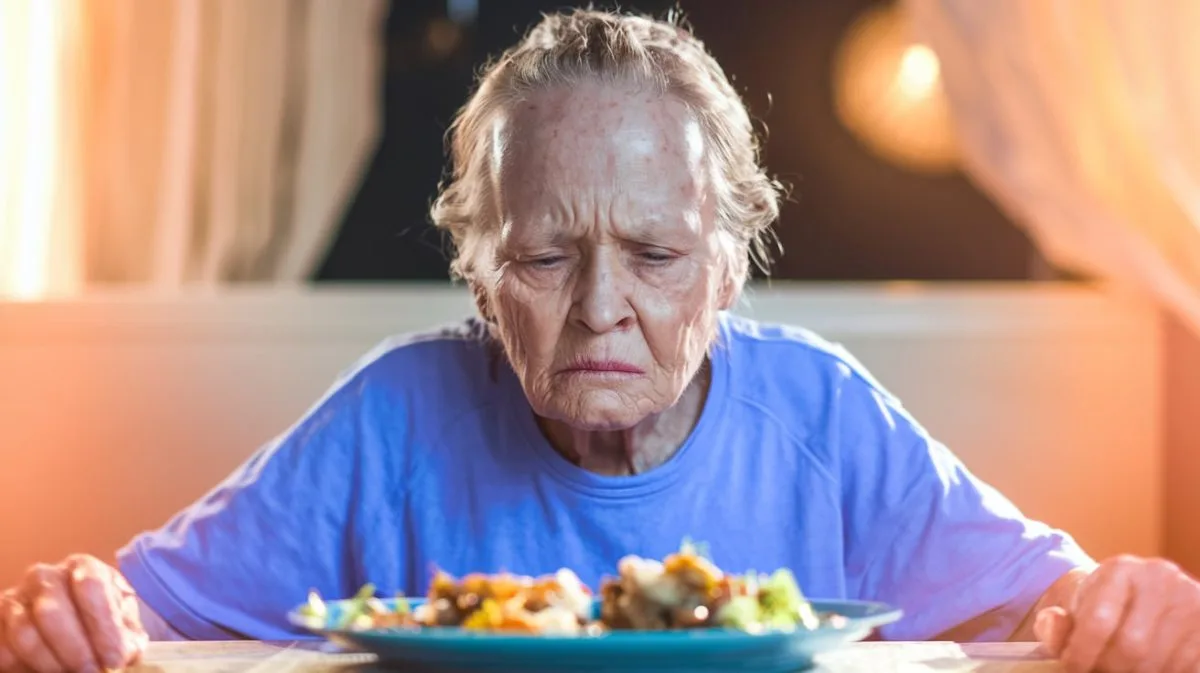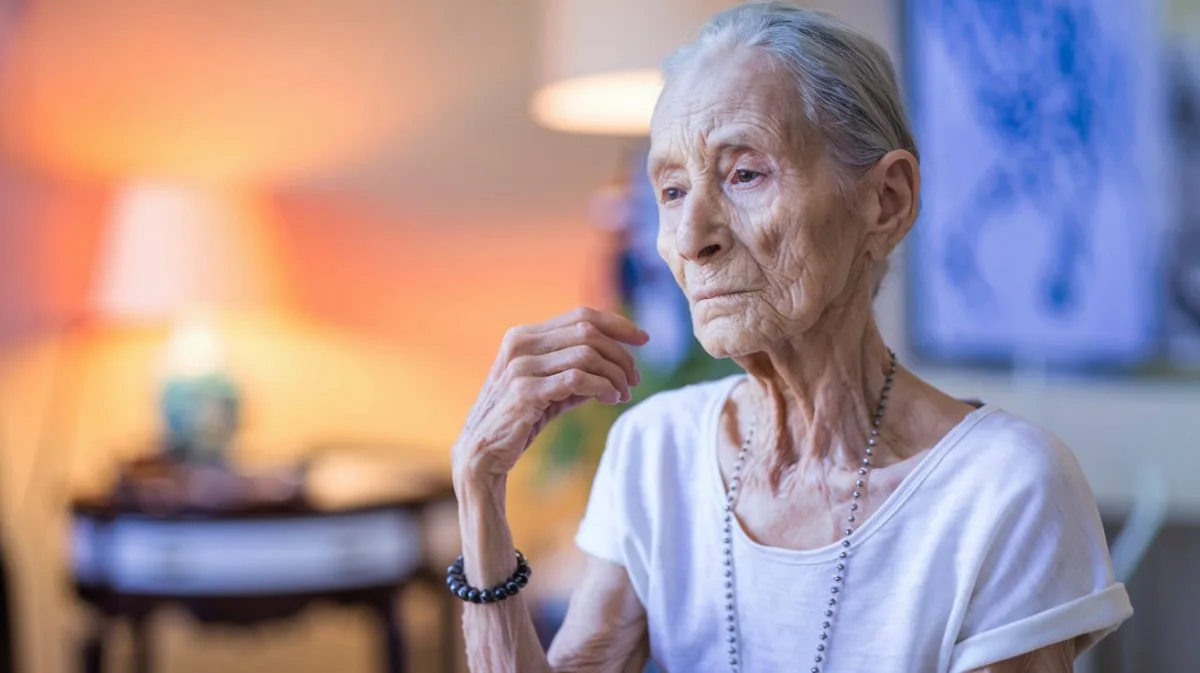
What is Anorexia in the Elderly + Causes and Treatment
Anorexia in the elderly is a common problem that can negatively affect their quality of life and health. This condition, which refers to a decrease in the desire to eat, can not only cause weight loss and muscle weakness, but also increase the likelihood of developing various diseases. Anorexia among the elderly can cause serious problems in them. Loss of appetite makes people prone to weakness and loss of muscle tissue.
Sudden loss of appetite in the elderly can be a sign of death in the elderly, a matter that should be discussed with a doctor immediately. In this article from humanhealthmag, we will discuss the causes, effects and methods of dealing with anorexia in seniors.
What Is Anorexia?
Anorexia is a symptom of a disease that causes a decrease or lack of appetite. This disorder is seen in many physical and mental illnesses. Anorexia may lead to malnutrition and the disorders caused by it. In this case, in addition to treating anorexia, you should also familiarize yourself with elderly malnutrition treatment. Simple anorexia should not be confused with anorexia nervosa, which is a mental disorder (in which a person does not lose their appetite, but rather fights hunger).
To diagnose what causes anorexia in the elderly, you must first know how long can elderly live without food and water? When observing the signs and symptoms of Anorexia of aging, you should see a nutritionist. Doctor’s examinations determine the causes of geriatric anorexia nervosa. Tests such as blood tests, abdominal imaging, and endoscopy help the doctor in the final diagnosis. For example, if anorexia is rooted in neurological problems, the desired result cannot be achieved without resolving mental disorders. Therefore, maintaining mental health in the elderly is very important, because many disorders and diseases occur as a result of neurological problems and lack of a healthy mind in people.

Signs of Anorexia in the Elderly
It is difficult to determine the signs of anorexia among the elderly because they are similar and coincide with the symptoms of aging. Below are some of the signs of anorexia in the elderly. If you experience several of these, it is best to see a doctor as soon as possible for advice:
- Sensitivity to cold
- Sudden weight loss
- Anxiety and depression
- Fatigue and poor sleep patterns
- Isolation, skin problems such as discoloration or dryness
- Strange eating behaviors such as not eating or eating alone
- Stomach pain due to bad eating habits such as slurping or swallowing
- Physical changes (dental injuries, hair loss, heart and digestive problems)
Almost everyone experiences temporary loss of appetite sometimes, for example when we have the flu, when we have a stressful period or when we feel overwhelmed by anxiety, when our illness is treated and improved, or when we feel more relaxed, our appetite returns. However, this is a little more complicated in the elderly. Note that if you are familiar with the relationship between elderly nutrition and diseases, you can treat anorexia and other similar problems.
Causes of Anorexia in Seniors
Weakness of the senses
- The decrease in the sense of taste and smell that occurs with age affects the appetite of the elderly. Even the sense of sight plays a role in controlling appetite. Also, the development of other disorders can reduce the appetite of the elderly. Among these disorders, bad taste in the mouth can be mentioned.
Difficulty chewing
- Different oral and dental problems in the elderly can affect chewing. This is one of the common causes of decreased appetite in the elderly and includes insufficient number of teeth, ill-fitting dentures, weakness and incoordination of chewing muscles, mouth ulcers, dry mouth and jaw joint problems.
Digestive diseases
- Some digestive problems in the elderly cause a decrease in their appetite, which in some cases are not diagnosed in the elderly. These problems can include swallowing, difficulty digesting food and absorbing nutrients. Digestive symptoms such as heartburn, stomach pain, nausea, reflux, bloating and diarrhea can cause a decrease in appetite in the elderly.

Endocrine disorders
- The endocrine system includes glands and hormones. Diabetes mellitus is a common endocrine disorder among the elderly and loss of appetite can be one of its symptoms. Another cause can be diabetic problems or gastric paralysis that occurs with the use of diabetes medication such as metformin.
Physical limitations
- Lack of movement can be another cause of decreased appetite in the elderly. Lack of movement itself is a cause of lethargy and a cause of low appetite in the elderly.
Mental problems and anorexia
- Depression is one of the main causes of anorexia in the elderly. Depression in the elderly can occur for several reasons, including physical problems. Memory impairment, addiction, and mental problems also affect the appetite of the elderly.
Medications that cause anorexia
- If the elderly suffer from chronic diseases and require long-term treatment with one or more medications, it is possible for the elderly to suffer from anorexia. Taking medications may not have a direct effect on appetite, but their side effects will cause the elderly to have anorexia.
Feelings of loneliness and anorexia in the elderly
- Feelings of loneliness in the elderly can be a cause of aversion to food in the elderly, and this feeling of loneliness even prevents them from cooking for themselves, and even food may seem tasteless to the elderly who are alone. This may be due to the medications they are taking, or it may be a natural problem due to aging and decreased taste sensitivity. To solve this problem in the elderly, they should eat with family members or friends as much as possible.
Treatment of Anorexia in the Elderly
How do you treat anorexia in adults? Recognizing and treating anorexia in the elderly is very important. There are various techniques for treatment of eating disorders in older people. Methods that each of them are derived from scientific methods and have been effective on a significant number of people. Choosing the right treatment methods should be done in consultation with a specialist doctor. Accordingly, among the solutions for treating anorexia in seniors, the following can be mentioned:
- Cooking the elderly’s favorite foods
- Involving the elderly in the food preparation process
- Setting a healthy diet with the advice of a nutritionist
- Drinking enough drinking water around the clock
- Presenting with the family to eat meals
- Increasing the number and reducing the size of meals around the clock
- Psychological counseling for the elderly (helping to cope with the grief of losing loved ones, restoring self-esteem, treating depression)

Healthy and Appetizing Foods for the Elderly
Would you like to learn about tricks to stimulate appetite in the elderly? To treat anorexia in the elderly, you can use some of the foods that we will introduce below.
- Cheese: Cheese is one of the most popular and widely consumed types of dairy products, which sometimes contains high amounts of fat and salt. A nutritionist says that eating cheese stimulates appetite and increases the desire to eat. For elderly people with high blood pressure or cholesterol, use the low-salt and low-fat type.
- Low-fat yogurt, a strong appetite stimulant for adults: Low-fat yogurt is known as one of the best appetite stimulant foods; low-fat yogurt has a high carbohydrate content and low fat, and since it is not chewed, it cannot make you feel full. We recommend using Greek yogurt as a snack because it contains high amounts of fresh fruits that help you feel full.
- Egg whites are a nutritious and appetizing food: All of the nutrients in eggs, including protein, fats, vitamins, and minerals, are concentrated in the yolk. Therefore, egg whites do not fill you up well and increase your appetite, resulting in overeating.
Nutritious Foods to Treat Anorexia in the Elderly
If the elderly person cannot chew due to dental and oral problems and this problem has caused anorexia in him/her, they can use the following substitutes instead of fresh fruits:
- Compote
- Peaches and pears
- Apple pie
- Softened fruit and juice
Also, use vegetable juice, such as carrots and cooked and mashed vegetables, instead of raw vegetables. Note that it is difficult for the elderly to eat meat. As a result, use the following foods instead of meat:
- Cheese
- Milk
- Yogurt
- Eggs
- Minced meat
In general, foods made with milk are easier to eat. Instead of thick and unchewable breads that are difficult to eat, you can use cooked cereals such as rice and soft cookies. Crushing bread into liquid foods is another way to use these breads.
Concluding Remarks
In this article, we have outlined some important points about anorexia in the elderly. Anorexia or low appetite in the elderly is a serious problem that can lead to malnutrition, physical and mental weakness, and a decrease in the quality of life. Given the wide-ranging effects that this condition has on the overall health of the elderly, it is essential to address its various causes, including physical, mental, and social problems. Therefore, it is better to consult a doctor about the elderly’s condition and the medications they are taking so that they can change the medications if they affect appetite.
Of course, by adding various spices, herbal seasonings, and lemon juice to food, make the taste of food better for the elderly to stimulate their appetite to eat. To increase the appetite of thin elderly people, serve food on a larger plate and use colorful vegetables in cooked form in the food.
We’re curious to hear your thoughts! What’s your take on this topic? Comment below and join the conversation; your opinion could spark new ideas!

FAQs
What are the Main Causes of Anorexia in the Elderly?
Anorexia in the elderly can be caused by various factors such as chronic diseases (such as diabetes, depression, dementia), medications, oral and dental problems, decreased sense of smell and taste, or digestive problems. Age-related changes in metabolism and decreased physical activity can also lead to this condition.
How can Anorexia Be Diagnosed in the Elderly?
Anorexia in the elderly is usually accompanied by reduced food intake, weight loss, fatigue, and decreased interest in food. If these symptoms are observed continuously, a doctor should be consulted to determine the exact cause.
What are the Strategies to Improve Appetite in the Elderly?
To improve appetite, you can use small and frequent meals, use the elderly’s favorite foods, increase the consumption of high-calorie and nutritious foods, create a pleasant environment for eating, and pay attention to water and fluid intake. Consulting a nutritionist can also be useful.
Can Anorexia in the Elderly Lead to Serious Problems?
Yes, it can lead to serious problems such as malnutrition, muscle weakness, a weakened immune system, and an increased risk of infections. If not treated promptly, it may lead to hospitalization or long-term health problems.
